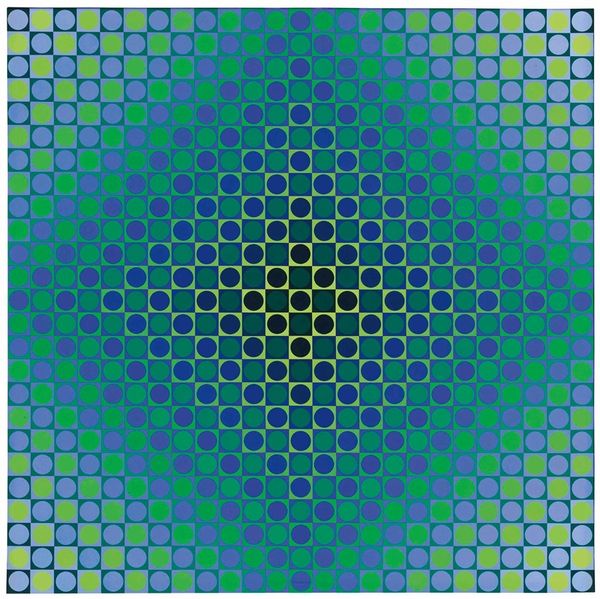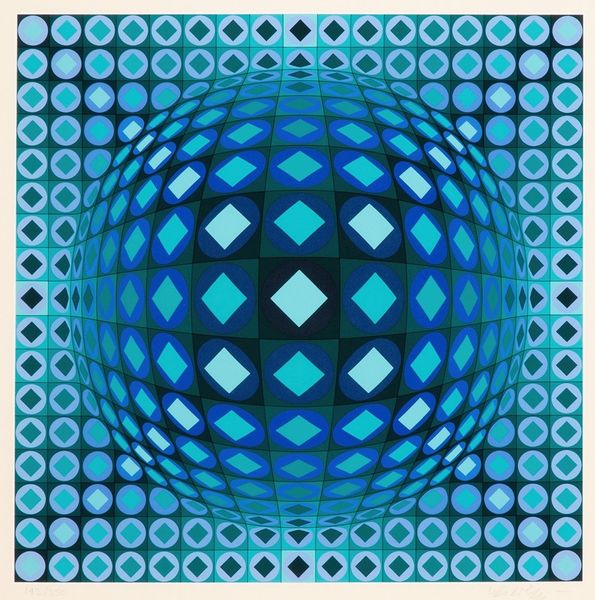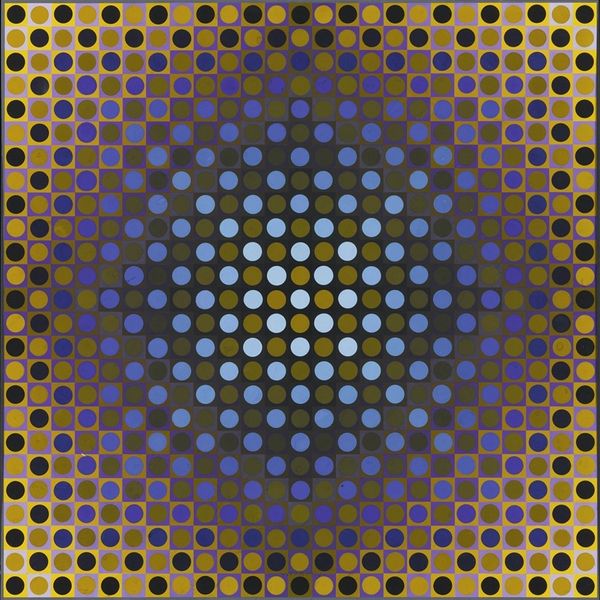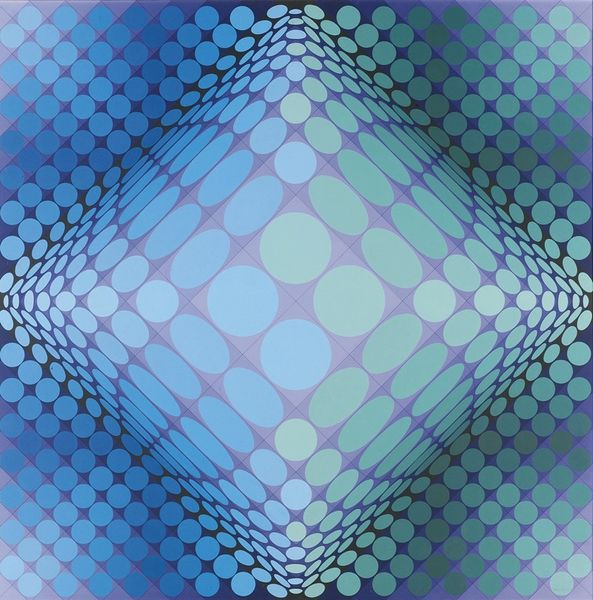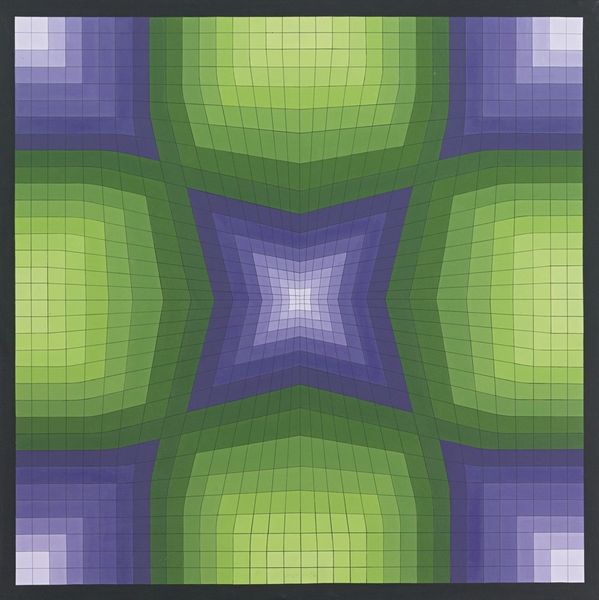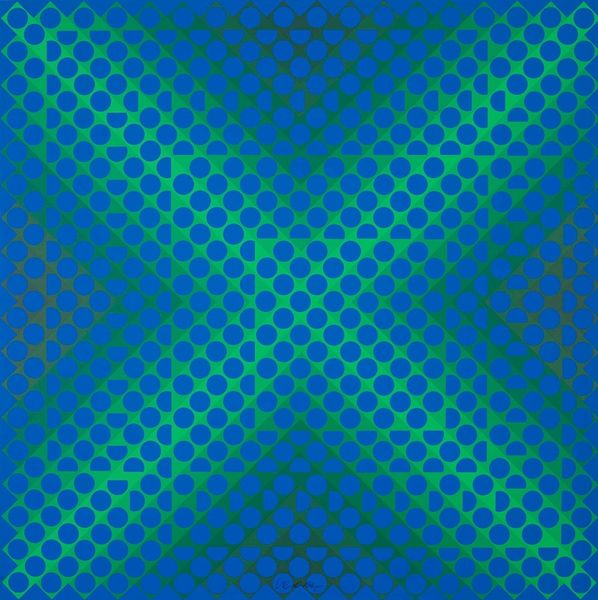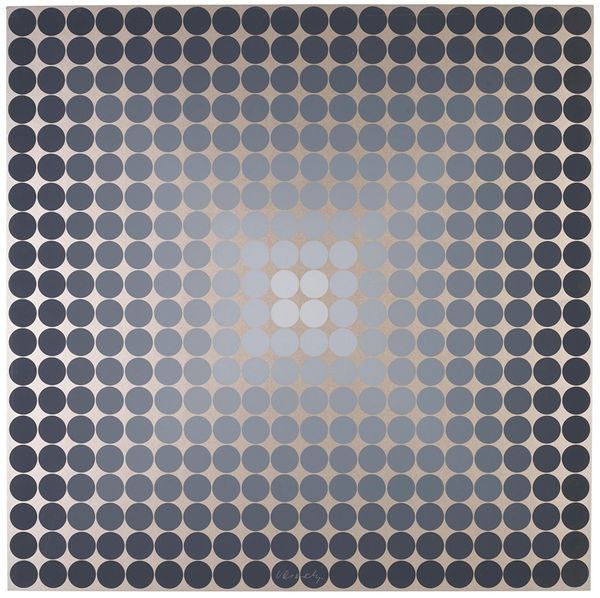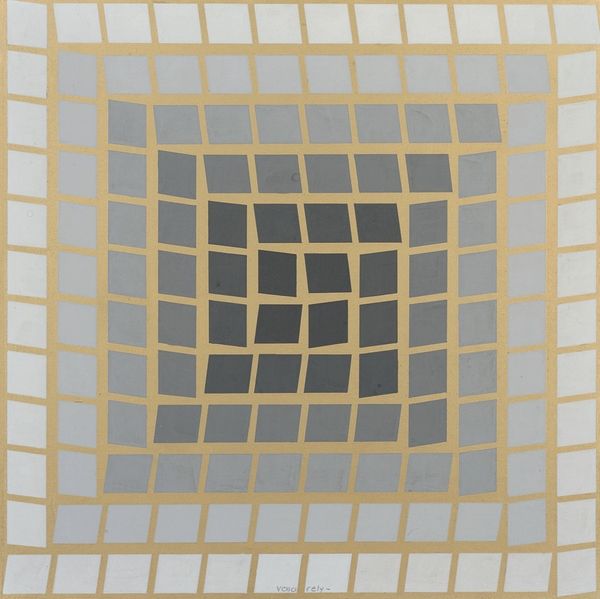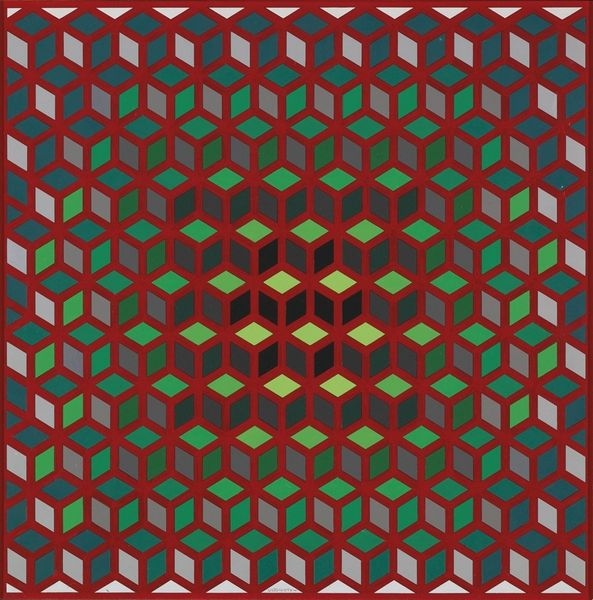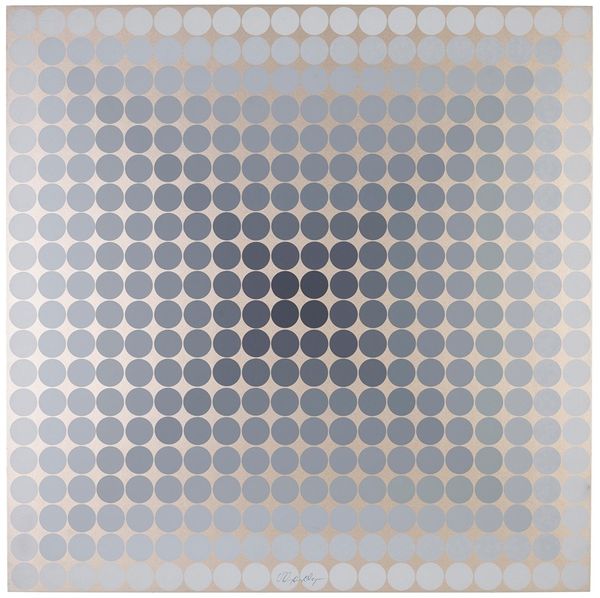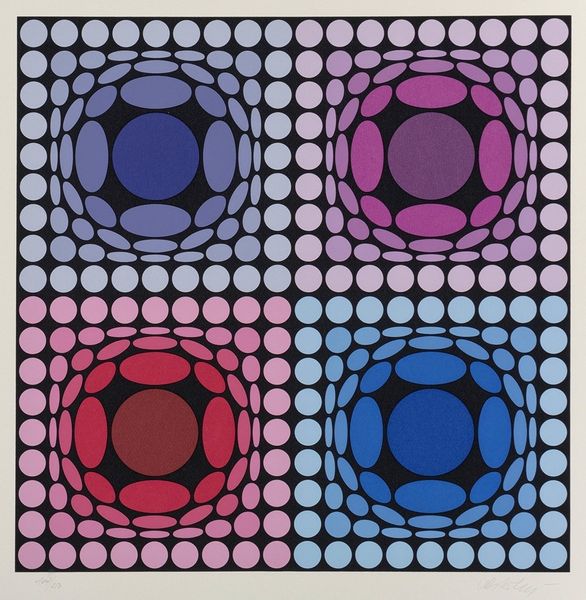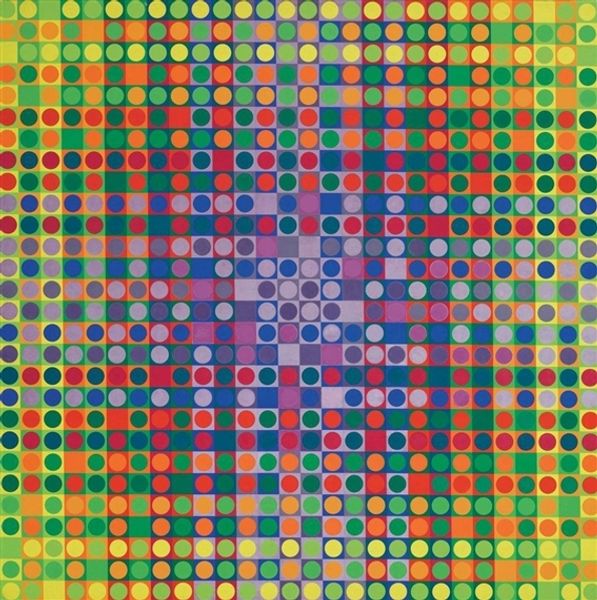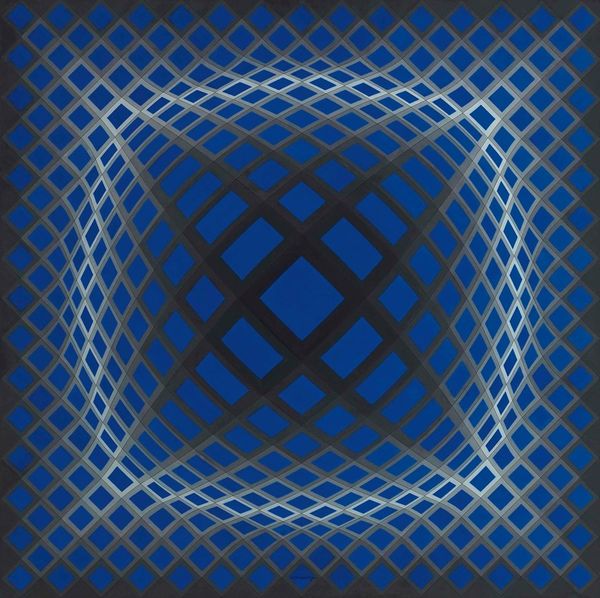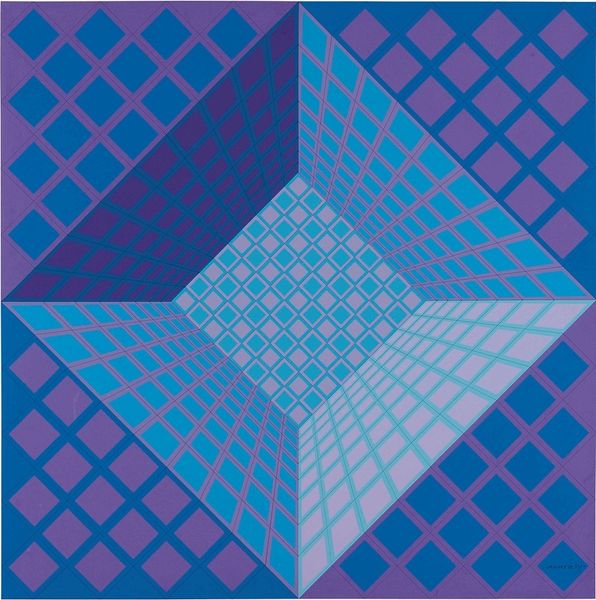
acrylic-paint
#
op-art
#
acrylic-paint
#
abstract
#
geometric pattern
#
abstract pattern
#
geometric-abstraction
#
abstraction
#
modernism
#
hard-edge-painting
Copyright: Modern Artists: Artvee
Victor Vasarely created this painting, titled Boglar-I, using geometric shapes and a vibrant color palette. It exemplifies the Op Art movement, which gained traction in the mid-20th century. Op Art emerged in a post-war era marked by rapid technological advancements. Artists sought to challenge traditional notions of art and perception. Vasarely, in particular, aimed to democratize art by creating works that could be easily reproduced and accessed by a wider audience. He embraced industrial materials and techniques, rejecting the elitism associated with traditional art forms. Boglar-I, with its mesmerizing patterns and optical illusions, embodies the movement's focus on creating dynamic visual experiences. Its abstract nature challenges viewers to engage actively with the artwork, questioning their own perceptions and assumptions. To fully grasp the context of this artwork, one can research the broader socio-political landscape of the time, exploring the influence of technological advancements on artistic expression.
Comments
No comments
Be the first to comment and join the conversation on the ultimate creative platform.
